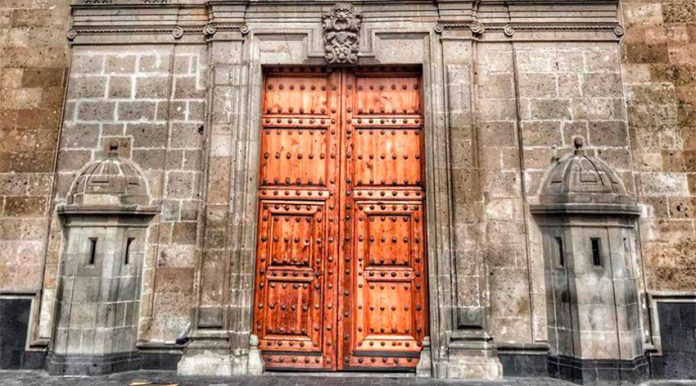Scientists have found that an anonymous political document has more weight in the federal government than a petition to save Mexico’s efforts in the field of archaeology.
The office of President López Obrador refused to accept a petition with more than 6,000 signatures that calls for the National Institute of Anthropology and History (INAH) to be exempt from budget cuts announced last month.
Bolfy Cottom, an INAH researcher, said in an interview that he personally submitted the petition to the Finance Ministry on Monday without any problem but was unable to do the same at the National Palace, the formal seat of executive power.
“The reception at the Finance Ministry was very friendly, they were very courteous. They received the letter supported by more than 6,000 signatures without any problem. That’s not the way it was at the president’s office,” he said.
Cottom said he showed the petition to an employee at the National Palace “but I frankly don’t know whether she understood its content.”
He said the woman asked him where the document’s “official seal” was, apparently believing that it was from another government department.
The INAH researcher explained that it was in fact a petition signed by academics, academic institutions and members of the general public after which the government employee told him that she couldn’t receive such a document and directed him to the “citizens attention section.”
However, Cottom wasn’t able to submit the petition there either.
He said it was surprising that the president’s office had accepted a document that outlines a possibly fictitious plan for a “broad opposition bloc” against Mexico’s ruling party but wouldn’t accept a petition whose aim is to save the INAH from a 75% budget cut.
“Is it not the case that they don’t receive documents that don’t have official seals? The truth is, it’s very strange,” Cottom said.
He is now trying to find another way to get the petition to López Obrador with the hope that he will change his mind about cutting INAH’s budget.
“The number of signatures reflects the greatness of this institute even with all its weaknesses and problems. The INAH has made history and has been present in the training of academics in the areas of history, archaeology, anthropology and linguistics.”
Source: El Universal (sp)
